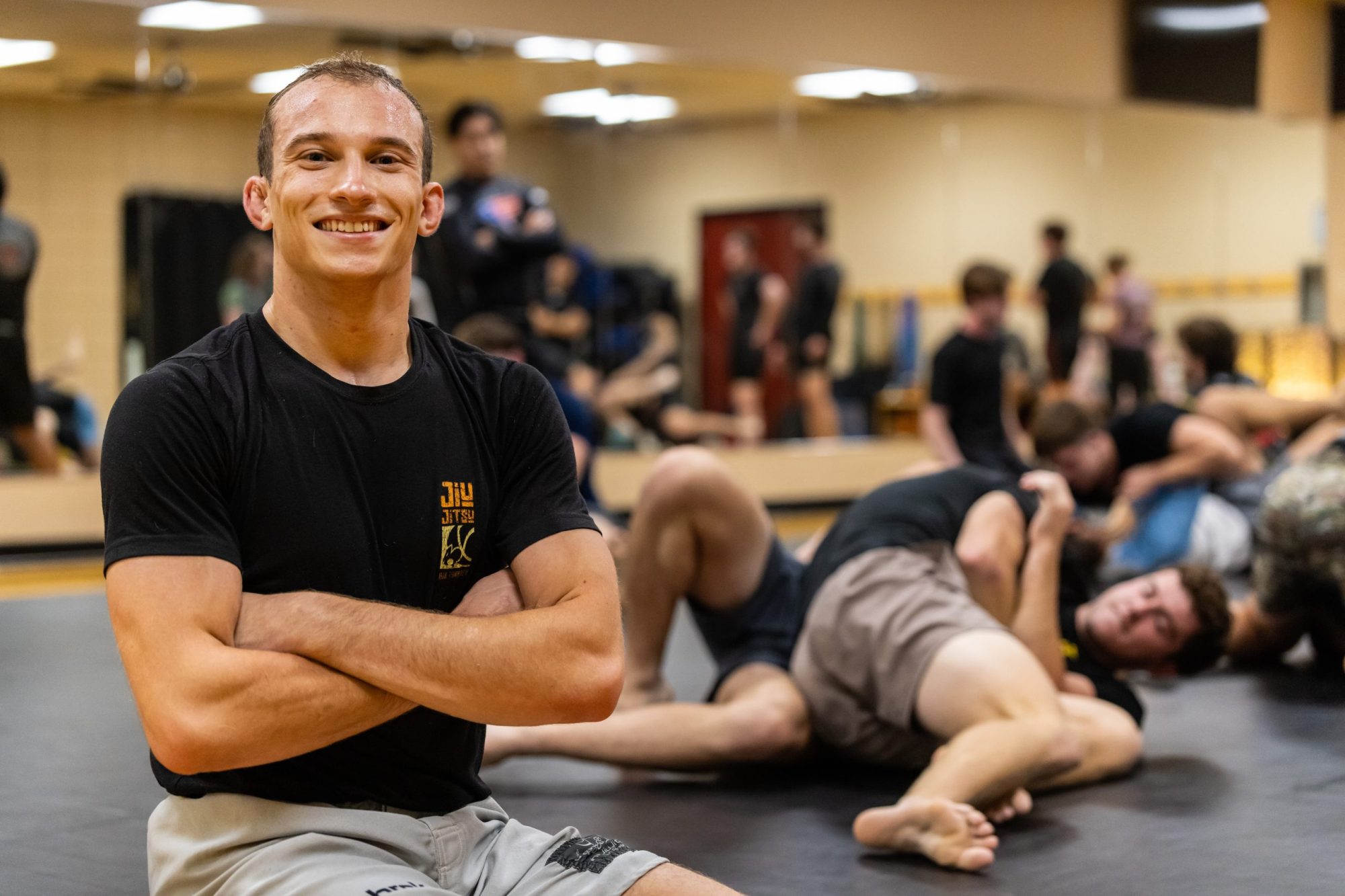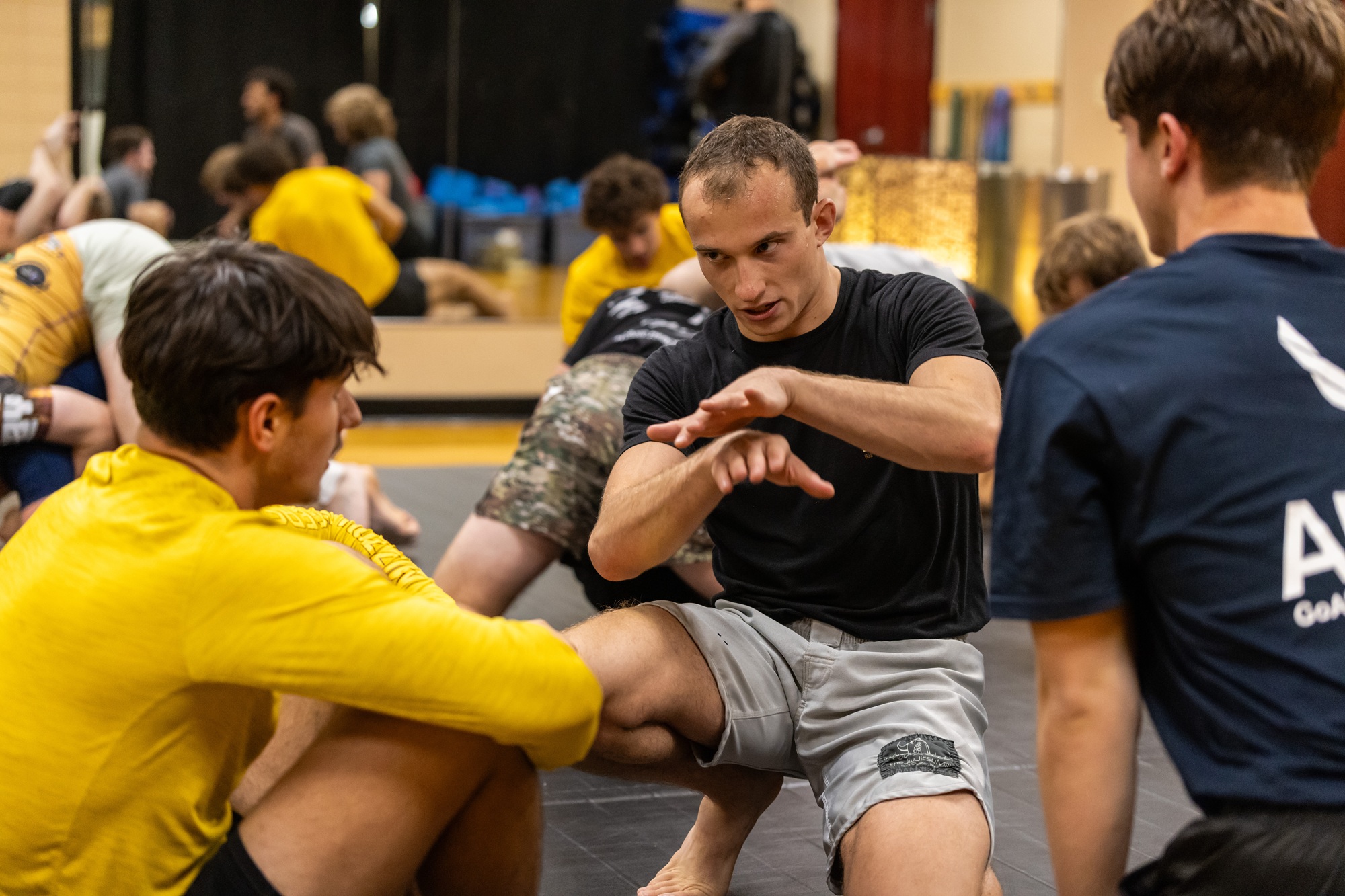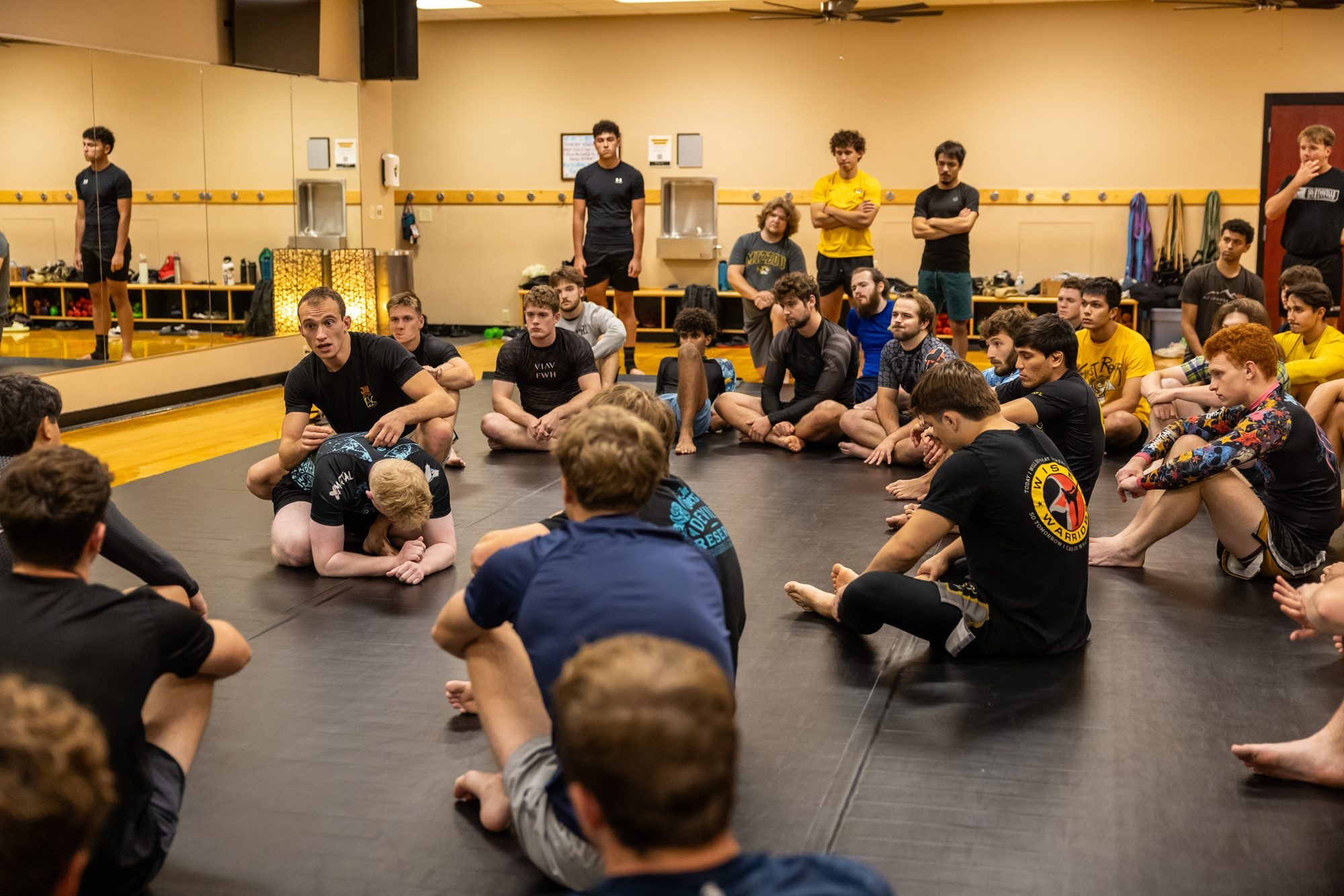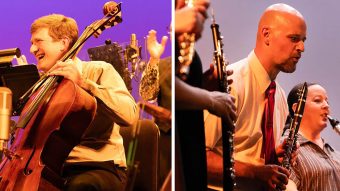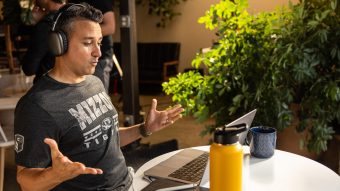Oct. 8, 2025
Contact: Eric Stann, StannE@missouri.edu
Photos by Abbie Lankitus
At night, when the University of Missouri campus is quiet, Nick Arnel can often be found on the mat grappling, working through drills and testing himself against teammates. These techniques are the foundation of Brazilian jiu-jitsu — a combat sport and martial art built on grappling, where leverage matters more than brute strength.
For this Mizzou junior, a native of Port Chester, New York, the challenge of competing in Brazilian jiu-jitsu is as mental as it is physical. Every match feels like solving a puzzle in real time — reading an opponent’s movements, anticipating their strategy and staying calm under pressure.
That curiosity on the mat inspired him to further explore how the mind works. He’s now pursuing a degree in psychology at Mizzou’s College of Arts and Science.
“Studying psychology at Mizzou gives me a way to understand the human mind on a deeper level — a benefit not just for myself as an athlete, but for the people I coach, too,” he said.
Now, the same focus and determination that drives Arnel at the gym and in the classroom is carrying him beyond campus and onto the world stage, where he’ll represent the United States at the Senior Grappling World Championships in Serbia this month.
Early beginnings
Arnel still remembers his first time on the mat. It was a Brazilian jiu-jitsu class at the end of his freshman year of high school.
At first, the thought of grappling with others was daunting. But with encouragement from his dad and a few friends, he gave it a try — and by the end of class, his perspective had completely changed.
“I thought, ‘Wait, this is fun. I get why people do this,’” he said.
Arnel’s curiosity about Brazilian jiu-jitsu quickly grew into a passion. Within six months — at just 14 years old — he was already competing against adults, matching his skills against older, stronger opponents. From the start, he was hooked, driven to sharpen both his technique and his mind.
After high school, Arnel’s commitment only grew stronger. Over the next two years, he trained full time and taught Brazilian jiu-jitsu classes in his hometown, located about 30 miles north of New York City.
“It helped shape me into a competent grappler, because it was just me and the sport — no distractions, just full-time dedication,” he said.
Then, Arnel began looking at colleges. He sought a place where he could remain centered while exploring new paths.
Focus meets opportunities
At Mizzou, Arnel found that balance.
“The Midwest has this really grounded, welcoming culture that drew me in,” he said. “It felt like a place where I could focus on what matters but also expand my perspective and challenge myself.”
At first, Arnel wasn’t sure what to study. But psychology quickly became a natural fit, letting him explore motor learning — the same principles he applies on the mat to master new jiu-jitsu techniques, make split-second decisions under pressure and improve with every roll.
“It just clicked,” he said. “What I was learning in my classes explained so much about how people train — why certain drills stick, why others don’t and how athletes improve under pressure. It reshaped the way I approach competing, but also how I coach others.”
Arnel’s drive to share the sport he loves also carried onto Mizzou’s campus.
Last year, he and a friend co-founded the Mizzou Submission Wrestling and Brazilian Jiu-Jitsu Club. With nearly 200 interested students, the group quickly grew into an official Mizzou student organization. Now, an average of 50 students attend each practice — typically three times a week at MizzouRec.
Because of the interest, the club is now working toward earning recognition with the National Collegiate Grappling Association, which would allow its members to compete nationally against other college students and earn All-American honors.
In just two short years, Arnel said the club has become a place where students from different backgrounds can push each other, build confidence and grow together.
“It’s amazing to see how far we’ve come in such a short time,” he said. “Everyone grew together, and that’s the kind of community we’re trying to build here at Mizzou.”
On the world stage
In the gym, Arnel said he finds joy in watching others — especially beginners — make breakthroughs on the mat.
“There’s nothing better than seeing someone land a technique they’ve been struggling with,” he said. “It’s proof that hard work pays off, step by step.”
As an added benefit, training with former high school wrestlers and other grapplers at Mizzou is helping Arnel sharpen his own skills and preparing him for the variety of styles — including wrestling, judo and sambo — he’ll face at the world championships.
“There are days when I’m completely exhausted,” he said. “But then I remind myself that every rep isn’t just training my body — it’s training my mind to adapt, to stay calm, to keep learning.”
For Arnel, competing in Serbia is the next step in an eight-year journey through the sport — a journey that’s defined more by personal growth than victories.
“Winning in Serbia would be incredible,” he said. “But for me, success is stepping onto the mat knowing I’ve used everything I’ve learned — in jiu-jitsu, in psychology and at Mizzou — to be the best version of myself.”
When he takes the mat in Serbia, Arnel won’t just be representing the United States. He’ll also carry with him the values, lessons and support of the various communities he’s found at Mizzou.
“Hopefully, what I’m doing shows other students that anything is possible,” he said. “At Mizzou, you can create your own path. If you commit to learning, growing and supporting one another, you can take it as far as you want — whether that’s building a new student club, stepping into a tournament for the first time or competing on the world stage.”
